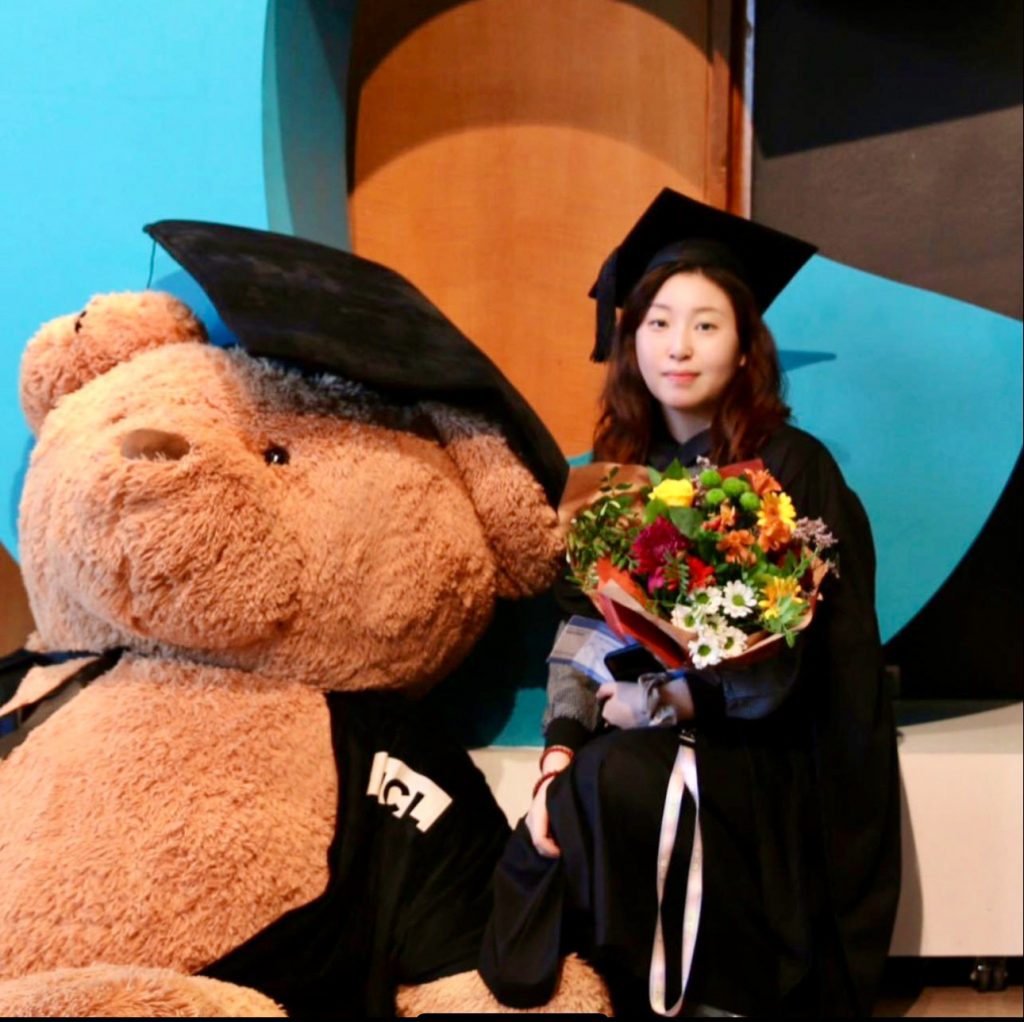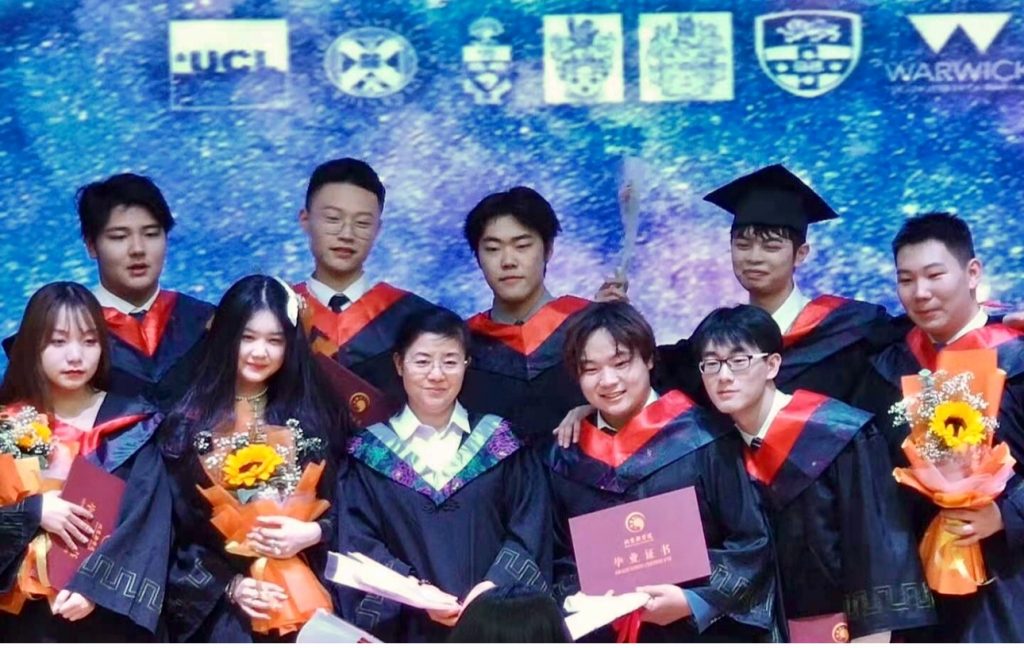
It’s exam time here in Beijing! For students and teachers alike, it’s the same roller-coaster ride of mixed emotions that you will find in any school in England.There’s the same slight giddy hysteria in the air as the students make their final preparations. There’s the same clutching at little squishy calming toys, or devotion to good luck mascots. There’s the same hush of teachers waiting anxiously for the exam room doors to be opened and for students to bring news from the examination battle front of victories and defeats.
There are deeper reasons for the atmosphere to be exactly the same as in a High School in England. The school I lead has a licence from Cambridge International Education, the world’s largest education and assessment company to use their IGCSE and International A Level examinations. These are of course international versions of the GCSE and A Level examinations that students sit in English High Schools. The exams are designed and published in England and flown to centres all over the world, including my school. The student scripts are bundled up and air freighted to England for grading and the issuing of the all important academic certificates, each with a shiny hologram of the Cambridge University badge and the signature of the Vice Chancellor of the university. CIE, as most professionals call them, partner with 10,000 schools around the world and work in 160 countries globally. I think these statistics give you some idea of the enormous hand of friendship that education offers from England to the World.

Why do Chinese students and their families choose to switch from a Chinese education track to an international one? Chinese national education has improved enormously and continues to make progress. Tsinghua University is number 12 in the world, Peking University, number 14 and there are 7 Chinese universities in the World’ Top 100. The explanation is that students and their families have done the Maths and calculated that the probability of securing a world top 50 university is higher following the the international route than the Chinese domestic one. There are possible educational benefits too. One of the strong points about English education is that it increasingly includes skill enhancement alongside knowledge and understanding. Students who leave my school are likely to have better critical thinking, creative thinking and problem solving skills than their peers simply because these competences are ‘baked in’ to A Level courses.
This is the practical answer. However, there’s a deeper set of reasons around their attraction to studying in the UK. And these are deeply humbling. Here are some figures from research by the Universities Counselling and Admission’s Service (UCAS), the not for profit organisation that manages all admissions to UK universities. Their findings in a survey show that 90% of Chinese students opting for international university study would recommend a British university. Further, 92% of Chinese students completing undergraduate studies reported themselves as being satisfied with the quality of their studies and experiences in the UK. 76% of acceptances for Chinese undergraduate students were from what are called ‘high tariff providers’, which most of us would understand as the Russell Group of top 25 British universities.
Originally it appears Business was the most popular course for Chinese international students, but now that is diversifying. I can see an increasing desire for creative subjects. One of my current Sixth Form students is determined to study electronic music, another wants to become an architect, yet another to study Fashion and Design in London which she sees as the fashion centre of the world. These are choices and ambitions as diverse as any I have known in my schools in the UK.
Surely there is so much here that we should be proud of. Anyone with even the slightest contact with Chinese people knows that above all things they value education. This value is not just transactional, although most Chinese people still believe in education as a meritocratic gateway to better life opportunities. Embedded in the culture and the language is a belief in the integrity of learning and its intrinsic value. A popular idiom still tells every young Chinese – 程门立雪 – chéngménlìxuě – to stand patiently at your teacher’s door waiting to study, even waist deep in freezing snow. 77% of Chinese international students believe that British universities are the best in the world. Almost half of the Chinese international students interviewed professed a love of British culture, values and society.
That resonates with my experiences of university counselling, listening to why British universities have such a strong appeal to them. I can’t help thinking to myself sometimes, if only the England of their dreams really existed, an England of fairness, equality and above all, opportunity to be yourself and make something of yourself. English universities seem to be particularly popular with young women and it’s clear that they believe that their education there will be free from the ‘glass ceiling’ out of date ideas about women in education that can still be found here and there in China.

Do you understand why anyone in the UK would want to stop this amazing educational bridge of friendship between the UK and China? Even if we are driven by the simplest monetised way of looking at the world, we should surely see this education industry as amazingly lucrative. In 2021, the British Council calculated that Chinese students, as a whole, spent £5.4bn on costs such as tuition fees and living expenses in the UK. To anyone who argues that Chinese students are taking university places ‘that belong to British students’, the response is that the situation is directly opposite to this narrow minded view. The exorbitant fees paid by Chinese students are in fact subsidising the relatively much lower fees for domestic UK undergraduates and graduates.
Yes, a proportion of graduates from China will choose to stay in the UK after graduation. To do this they now need to be in a job paying 38,700 pounds per year and can have no recourse to public funds. In other words, far from taking advantage of the UK, such Chinese graduates will be adding value to British businesses and the British economy. One of my graduates who chose to stay is now a bank manager and a paragon of middle class respectability, obsessed with showing me photos of his property and his cars. Another is a Finance Consultant for BlackRock, the investment managers, helping to keep the world’s money flowing through London.
Yet the truth is that 80% of young Chinese graduates from UK universities return home to China after completing their studies. A case study from my school is a young lady called Wang Xiao Yu (Ada), who completed a BA and than an MA in Education and Psychology at the London University Institute of Education and is now determined to make her contribution to the improvement of education in China. This I see as the perfect bridge of friendship, where a UK university has clearly benefited for 5 years from this young lady’s passionate commitment to learning and research and now China stands to benefit from all the knowledge and experience she will bring home.

For me, there is every reason to continue to grow these academic bridges of understanding and co-operation between two countries with such deep cultures of learning. It saddens me whenever we hear performative and unsubstantiated rumours in some areas of the British media that are stirring up resentment or suspicion of China, and the Chinese people. The result of such rumours, which always seem to fade shortly after grabbing fear-mongering headlines, can so easily be needless acts of racist abuse.
The good news is that when British and Chinese academics do connect and co-operate great things happen. Recently there was a major scientific breakthrough coming out of groundbreaking research jointly led by researchers from the Royal Botanic Gardens at Kew and the Kunming Institute of Botany of the Chinese Academy of Sciences. Working together, sharing talents and research techniques they completed a mapping of the DNA of flowering plants, the tree of life! This has enabled them to analyse the DNA of 9,500 plant specimens, including extinct plants. There is now the potential for the genetic study of 400 million plant specimens.
Let’s just take this spirit of co-operative research one stage further. The team have now made all of this data freely available to the general public and the scientific community. The capacity for all sorts of further research into biodiversity and agriculture and medicine this represents is incalculable. The tragedy is that it is the sabre rattling and vacuous abuse that reaches the media headlines, not epic stories like this of inspirational Anglo-Chinese understanding!

Very soon it will be graduation day and my students will leave. To help overcome the feelings of stress the students experience in the Exam Hall, I call it the Departure Lounge like at an airport. Get their paperwork right and they’ll be flying off to universities across the world, carrying the hopes and dreams of their families with them. Each student carries within her or himself the seed of new growths of understanding and co-operation. That’s why the work that we do together as SACU and the work of our sister friendship organisations really matters. Without us, there would only be stony ground. We nurture and grow an environment of friendship in which the potential for partnerships like the plant DNA project can take root and flower.
